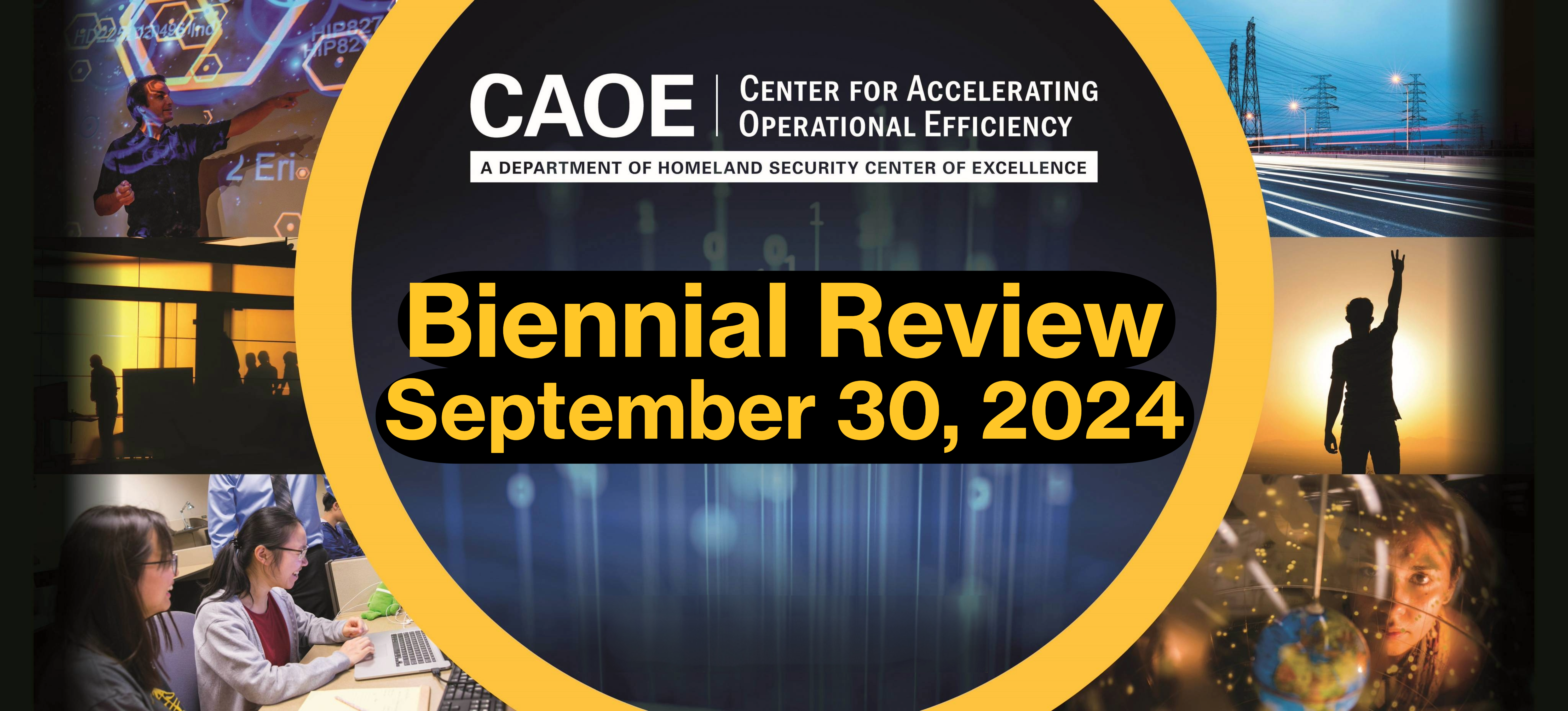ASU websites use cookies to enhance user experience, analyze site usage, and assist with outreach and enrollment. By continuing to use this site, you are giving us your consent to do this. Learn more about cookies on ASU websites in our Privacy Statement.
The Center for Accelerating Operational Efficiency (CAOE), led by Arizona State University, develops and applies advanced analytical tools and technologies to enhance planning, information sharing and real-time decision-making in homeland security operations.
The research at CAOE will help the Department of Homeland Security improve efficiency and security at our national borders, ports and airports through better prediction and response to emergencies.
Established as a Center of Excellence by the Department of Homeland Security Science and Technology Directorate.

Featured projects

Strengthening Trust in Large Language Models
The emergence of large language models (LLMs) such as ChatGPT has revolutionized information retrieval and interaction, particularly in intelligence analysis. However, concerns about their trustworthiness in security-critical applications persist due to security risks, factuality issues and biases. The project proposes a multifaceted approach to evaluating and enhancing the trustworthiness of large language models (LLMs), addressing key concerns related to security, factuality and biases.

Enhancing AI for Homeland Security
The Multisource AI Scorecard Table (MAST) for Evaluating Generative AI in Worker-Automation Team Tasks (MEGAWATT) project aims to leverage MAST, a tool rooted in Intelligence Community Directive (ICD) 203, to evaluate and enhance the performance of large language models (LLMs) like OpenAI’s ChatGPT.

Unlocking Software Safety with CHIAUS
The CHIAUS project aims to revolutionize risk communication in software development and consumption by integrating human-centered interactions with Software Bill of Materials (SBOM) data. Led by Principal Investigator L Jean Camp and her team at Indiana University, the project addresses the pressing need for actionable, understandable risk communication in the software ecosystem.

Fortifying Security Screenings by examining human-AI interaction
In the realm of safety science, a paradigm shift towards resilience engineering offers new insights into addressing the challenges of complex systems, particularly in high-stakes environments like security screening. This project, Resilience Engineering for Visual Screening in Security Settings (REVS), aims to advance the understanding of resilience engineering principles within the context of security screening tasks.
Recent news and events

CAOE SCRIPS Workshop Explores Supply Chain Resilience
The Center for Accelerating Operational Efficiency (CAOE) at Arizona State University, a Department of Homeland Security (DHS) Center of Excellence, hosted the SCRIPS: Supply Chain Resilience Issues, Problems and Solutions for the Homeland Security Enterprise Workshop to great success.

CAOE Launches 2025 Broad Request for Proposals
The Center for Accelerating Operational Efficiency (CAOE), a Department of Homeland Security (DHS) Center of Excellence, is excited to announce the launch of its 2025 Broad Request for Proposals (RFP). Learn more and apply by December 2, 5:00 PM MST—Let’s drive innovation together!

CAOE Biennial Review Highlights
The CAOE Biennial Review serves as a critical platform for showcasing the latest research and innovations developed by the Center for Accelerating Operational Efficiency (CAOE), a Department of Homeland Security
Split-second decision-making. Wise allocation of scarce resources. Accurately predicting cascading consequences of natural and manmade disasters.
These are just some of the complex challenges our country’s homeland security workforce faces each day. The research, systems and technology developed at CAOE provide homeland security agencies with real-time information, predictive tools for resource and response planning, and systems that increase the odds of resolving security problems.
Improving Airport Checkpoints
Dynamic resource allocation for predicted demands at a network of screening facilities.
Social media
Follow us on social media to stay up-to-date with current opportunities to collaborate, ongoing projects and cutting-edge research.



